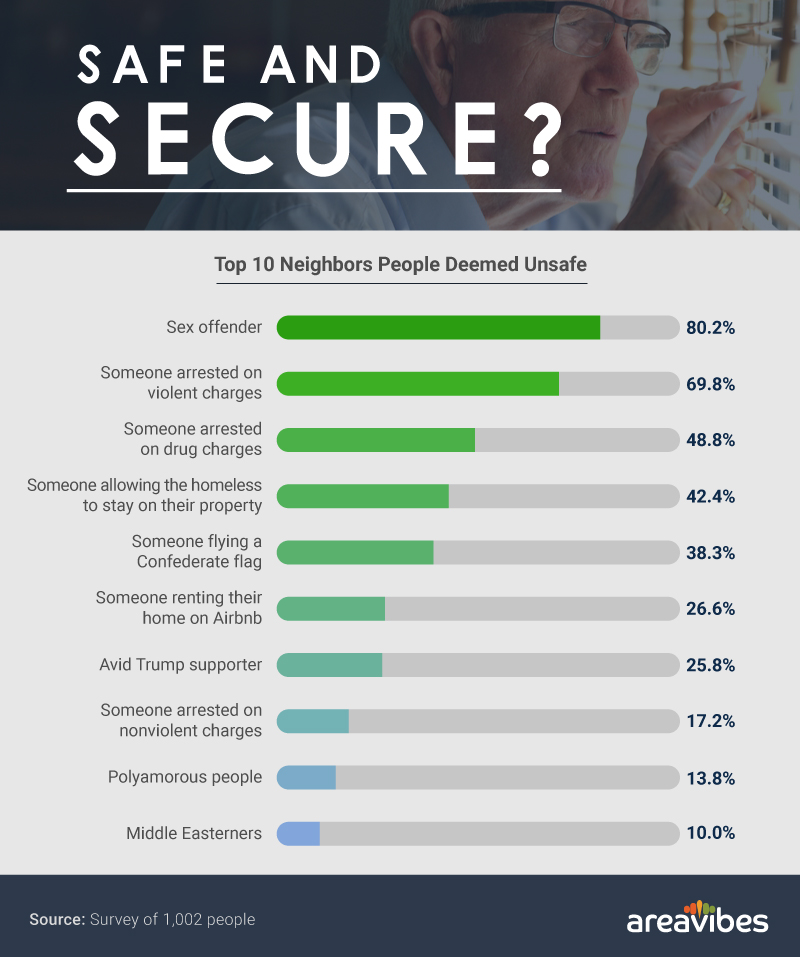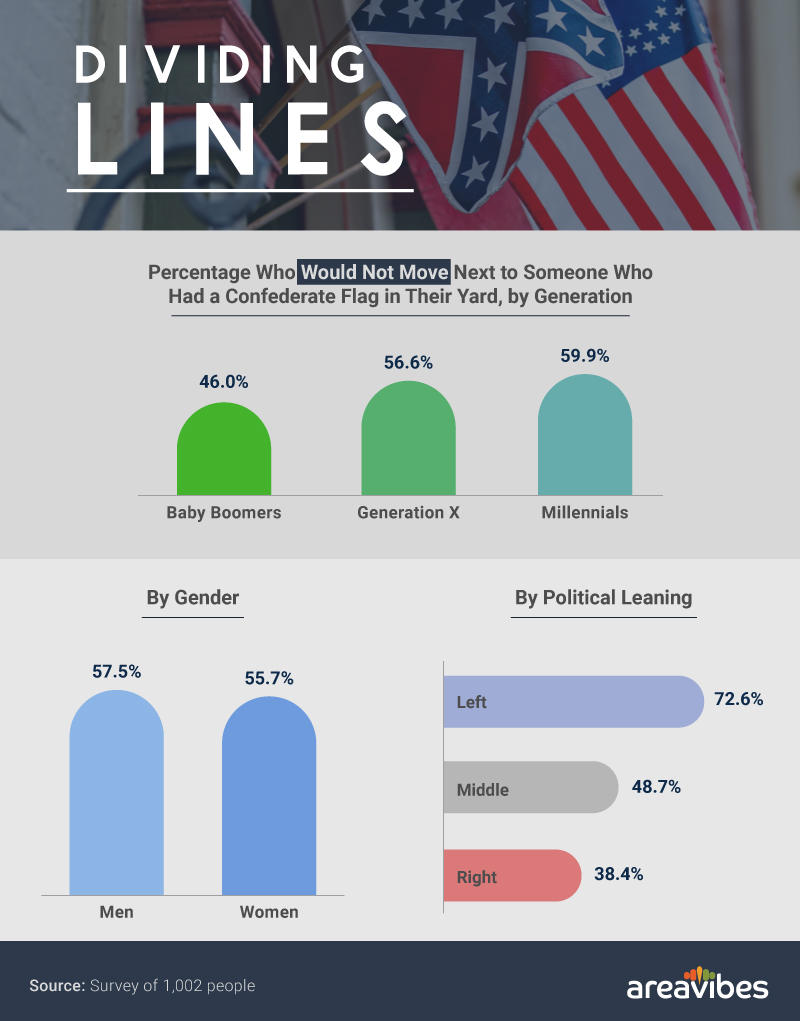There are a lot of things that Americans don’t want in their neighborhood. For a quarter of them, it is an avid supporter of President Trump, and, for about 1 in 10, it is those in a “throuple,” such as the one tied to outgoing Rep. Katie Hill.
A new poll about “who lives next door” from Areavibes.com found that the top type of neighbor most feel “unsafe” living near is a sex offender.
But the president’s supporters also made the “unsafe” list at 25.8% in the survey shared with Secrets.
And at 13.8%, polyamorous people were also deemed “unsafe” to live next to. The reporting on Hill, the California Democrat, described her in a similar consensual relationship with a female aide and her husband. She resigned over the weekend amid an ethics investigation.

“Learning they were an enthusiastic supporter of Donald Trump, lived a polyamorous lifestyle, or had a criminal record were typical causes for concern,” said the survey analysis.
The survey, however, does not say why people feel unsafe living next to Trump supporters or those in open relationships.
Much more than Trump, the 1,000 polled said they would not want to live next to somebody flying a Confederate flag, the symbol of the South in the Civil War.

The company also surveyed people to find out how welcome they feel in their neighborhoods and if they interacted with their neighbors.
Most said they felt welcome, but the survey found that the friendliness wasn’t there.
“For most people, the presence of the Confederate flag was very polarizing, and many Americans would choose to not live in an area where this flag was present. Still, we also found a majority of people didn’t know much (or anything) about the people living next door to them. In many cases, we found more than half of Americans didn’t even know the names of their next-door neighbors, and some demographics (including biracial, Asian, and black or African American respondents) were far less likely to feel accepted in their own communities,” said the survey analysis.
